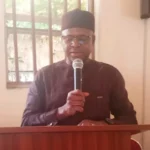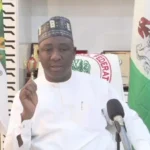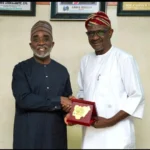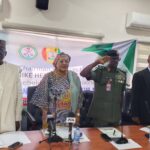By Olatunde Ajayi
Prof. Antonia Simbine, Director-General (D-G), Nigerian Institute of Social and Economic Research (NISER), has emphasised the need for gender inclusiveness approach in the fight against corruption.
Simbine said this in Ibadan on Thursday at the Actualizing Behaviour Change (ABC) Series, an ongoing NISER and Macarthur Foundation Project, entitled “Research Support for Corruption Control through Behaviour Change”.
The News Agency of Nigeria (NAN) reports that Thursday’s series, however, focused on the theme, “A Gender-Lensed View Citizens’ Lived Experiences of Corrupt Behaviour in Nigeria”.
According to Simbine, the past application of one-size-fits-all solutions to the problems of corruption in Nigeria may be the reason it has not been completely successful.
“In the previous series, we have been looking at all aspects of corruption issues, behavioural aspects of corruption.
“Now, we are considering how it relates to women and men differently, but much more with regards to women; all toward finding solutions for corruption,” she said.

The D-G added that the organisation of anti-corruption agencies should have a gender perspective and be better positioned to address the issues of people’s behaviour toward corruption.
“The second aspect is that, in the programmes of anti-corruption agencies, they need to now understand the various aspects of behaviour or reaction of people to the issue of corruption and then target their programmes in that direction.
“They must be able to analyse what a corrupt man or woman does, how they do it, what pushed them to do it, what is their reaction, and then we may be saying we are fighting corruption,” she said.
Dr Temitayo Adeyemo, a Lecturer at the Department of Agricultural Economics, University of Ibadan, said research had shown that women exhibit different experiences of corrupt behaviours when interacting with government agencies.
For an effective anti-corruption campaign, she called for gender inclusion and mainstreaming in corruption control policies and the structure of the institutions.
“We must incorporate gendered themes in the corruption campaign to enable voicing out for the vulnerable victims,” she said.
Similarly, Dr Safiya Ahmad-Nuhu, Director, Centre for Gender Studies, Bayero University, Kano, said corruption should be seen as a cross-cutting issue when viewed through a gender lens.
“There are different experiences of men and women about corrupt practices but at the core of it, is a governance issue that affects development.
“Gender inclusion is a critical issue for sustainable development. As a nation, working toward the discussion on sustainable development cannot be done in rhetoric.
“If the country really wants to move forward, we need to consider all the various components of the SDGs in terms of where women fit.
“It is not just in respect of a particular issue, but all the 17 goals; women’s role in those goals has to be included,” she said.
NAN reports that the ABC platform provides the opportunity for debate and cross-fertilisation of ideas among scholars, policymakers and practitioners. (NAN)(www.nannews.ng)
Edited by Moses Solanke












